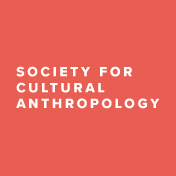Scholars across disciplines working on Asian medicines are currently encountering a multitude of responses to the ongoing pandemic of coronavirus disease (Covid-19), whether they are anthropologists who were recently in the field (or are under lockdown) or textual scholars making sense of the outbreak through the historiography of epidemics as depicted in classical medical and ritual texts. Varied ideas on what counts as contagion, what works for prevention, and what Asian medicines can offer in terms of treatment are circulating widely, leading to heated debates within and between practitioners, patients, and through public health policies. Traditional Asian medical texts and practices are being drawn on for anti-epidemic recipes and precautionary measures. These forms of engagement are, in turn, recasting established boundaries between nationalities, raising new questions about the enduring relationship between science and religion, and leading to novel interfaces between medical traditions and health professionals. In these entangled times of containment, protection, and (self-)care, this Hot Spots series brings together interdisciplinary accounts on the history, contemporary practices, and politics of epidemics in general, and in particular in relation to traditional medicines from Chinese and TCM (Traditional Chinese Medicine), Daoist, Sowa Rigpa, Indian Ayurveda, Japanese Kampo, South Korean, and Vietnamese contexts.
These essays were written in March and April 2020.
Posts in This Series
Asian Medicines and Covid-19: An Introduction
The idea for this Hot Spots series emerged in early March 2020, as the epidemic was moving from Asia to Europe and North America. The essays presented here were... More

Sinophobia, Epidemics, and Interspecies Catastrophe
Since January 2020, the Covid-19 pandemic has been accompanied by a wave of racist, xenophobic incidents targeting people perceived by their attackers as Chines... More

Daoism and Disease in China and Diaspora
Epidemics had a significant influence on the founding and spread of China’s major religions. In the nearly five hundred years between 206 BCE and 265 CE, imperi... More

Three Qinghao Formulae for Treating Epidemics (wen yi)
In times when people know that biomedicine has no cure against Covid-19, Chinese medical practitioners are engaging with a rich archive of formulae and materia ... More

Translation of Beijing's Recommendations for Traditional Chinese Medicine (TCM) Treatment of Covid-19
Translators' Note In contrast to the SARS outbreak in 2002/2003, where Chinese medical interventions were not particularly encouraged, the current Chinese gover... More

Covid-19 from the Perspective of TCM Physicians in German-Speaking Countries
This article describes what knowledge TCM practitioners in German-speaking countries had about Covid-19 by March 10, 2020, and what therapeutic measures are bei... More

Quarantine and Expulsion in Early Tibet: Reflections on the Padmasambhava Legend in the Age of the Coronavirus
The novel coronavirus has forced each of us to reconsider our interpersonal relationships. Although most contemporary healthcare systems are designed to treat p... More

Covid-19 and Tibetan Medicine: An Awakening Tradition in a New Era of Global Health Crisis
Days after news hit the Tibetan plateau of the novel coronavirus outbreak in Wuhan, provincial health bureaus and central Tibetan medical institutions across th... More

Covid-19 from Tibetan Medical and Cultural Perspectives: A Report from Lhasa
What Is a “Virus” in Tibetan? Biomedicine defines viruses as submicroscopic infectious agents that replicate in a living cell, just like the genes of the host ... More

Sowa Rigpa in Lockdown: On the Potency and Politics of Prevention
During a visit to Dharamsala, Himachal Pradesh, in the northwestern Indian Himalayas in early February 2020, Tibetan medical initiatives for prevention of Covid... More

A Conversation on the Causes of Covid-19 with a Senior Tibetan Doctor Living in Lockdown in Milan
This piece, presented as a contextualized question-answer interview (conducted March 6, updated March 29, 2020), outlines how a senior practitioner, scholar, an... More

Weighing Privacy Concerns: South Korean Public Health during Covid-19
One of the more conspicuous developments of the Covid-19 crisis has been the performance of East and Southeast Asian public health systems, with Taiwan, Singapo... More

Epidemic Culture in Premodern Japan
Epidemics, in times past, traveled much more slowly than today. Word of their coming almost invariably preceded a growing number of persons who suddenly develop... More

The Invisible Mask: Kampo Pharmaceuticals and Chinese Medical Practitioners during the Coronavirus Crisis 2020 in Japan
“I am disappointed by the government recommending everyone just to wear masks and wash their hands. It would be more important to advise people on how to keep a... More

Viral Scaling
Kansai International Airport, Osaka, February 16, 2020. As passengers are waiting in silence to board the plane leaving for Hanoi, I’m clicking my phone between... More

Ayurveda and Covid-19: The Politics of Knowledge Systems, Yet Again
In the wake of the current Covid-19 pandemic, the politics of knowledge systems has resurfaced. It always does, whenever there is a medical emergency of any kin... More

Doctors at the Borders: Ayurveda’s Encounter with Public Health and Epidemics
On March 11, 2020, the Government of India advised the states and union territories to invoke the Epidemic Diseases Act, 1897 and effectively enforce its adviso... More

Ayurveda in the (Mis)Information Age
On March 28, 2020, in another instance of eventocratic governance (Kalyan 2020), Prime Minister Narendra Modi interacted with one hundred AYUSH practitioners th... More

Covid-19 in Kerala: Nature Cure, Social Media, and Subaltern Health Activism
In Kerala, South India, nature cure and herbal healers are also public health activists, offering strategies to strengthen immunities in a vulnerable age of air... More